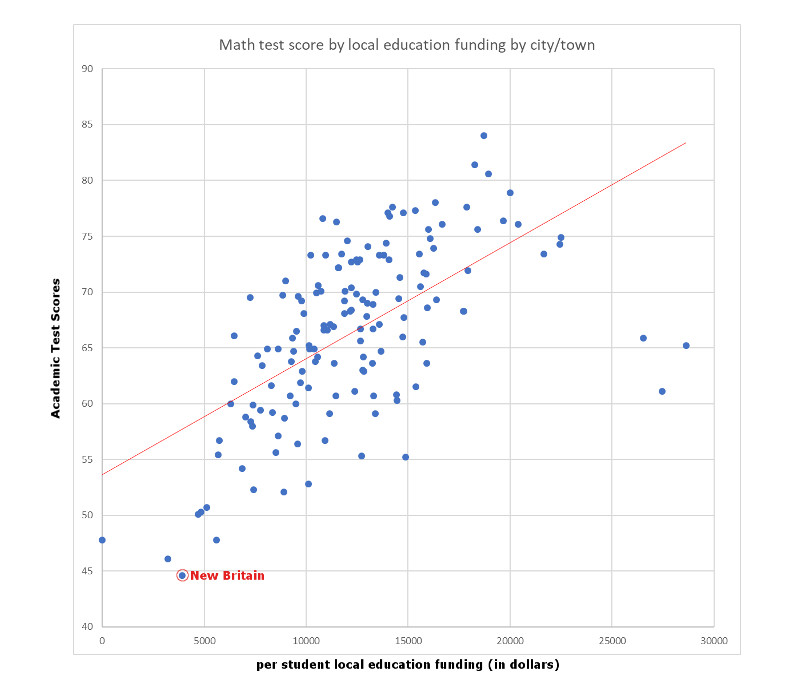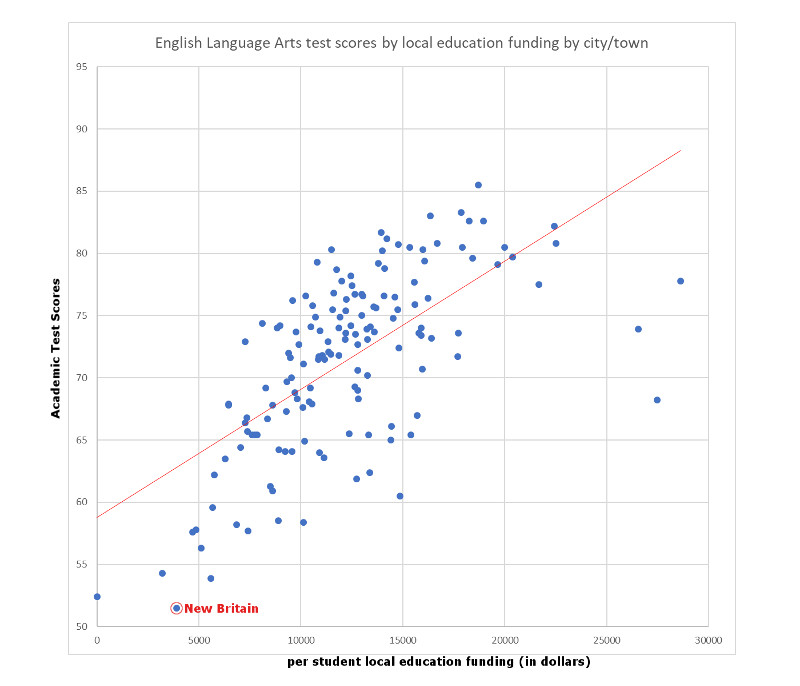Republican Mayor Erin Stewart’s claim that she increased schools funding by “more than $7 million” does not appear to be supported by the facts in her budget.

City education funding, the amount of money that the city allocates from local taxes to fund the regular annual budget of the city’s schools, has become an issue for New Britain. The New Britain Progressive reported that the low amount of education funding provided by the city government appears to be correlated with low school test scores in New Britain.
In a campaign mailing, Stewart claims to have, “Increased education funding in the 2019-20 budget by more than $7 million.”
But the budget proposed by Stewart and approved by the Council allocates no additional funding in the city’s budget line for the annual operation of New Britain’s schools for the 2019-20 budget year. This is the local part of the funding that determines, among other things, how many teachers that the school district can hire to keep class sizes smaller, allowing teachers to devote more time to each child’s education.
Stewart did, however, propose, and the Council approved, a transfer to the school system of the money from a grant that the state provides to the city to support special education. That special education grant was estimated to be $3.1 million in the 2018-19 city budget. That money, now being passed on the school system, would be the single largest increase in annual operating education funding Stewart has provided to city schools in her six years as mayor.
Yet, it is considerably less than the $7 million increase claimed in Stewart’s campaign mailing.
In addition, even if that grant were continued to be transferred to the school district in future years, it appears that it would still remain at similar levels from from year to year, making the passing of this grant to the school district this year inherently a one-time increase.
But even this one time increase would also still leave Stewart’s local school operating funding at less than 1% more per year over the six years of her administration. Stewart has come under heavy criticism for repeatedly freezing the amount of money that the city allocates locally to its schools, despite millions of dollars in increases in funding for City Hall departments.
The New Britain Progressive reported in May that, despite New Britain receiving, “the fifth highest state Education Cost Sharing grant funding of all of the cities and towns in the state,”
New Britain’s own local commitment to education, on the other hand, is among the lowest municipal school districts in the state. Only Bridgeport allocated less local funding per student than New Britain in the 2015-2016 state data.
While New Britain residents have less money than the state average to fund local services, the New Britain Progressive reported that, even looking at a percent of the city’s ability to pay, the city of New Britain still appeared to allocate to its schools, “the second lowest among municipal school districts in the state.”
The New Britain Progressive also reported that,
Comparing the amount of local support for education, using the 2015-2016 data, to the most recent academic test scores appears to show a general correlation between how much a city or town provides in local funding for their schools and the test scores of the students in their schools. The comparison appears to show New Britain’s place near the bottom of both local education funding and test scores as part of a larger pattern, with New Britain near the low end of the scale.


The New Britain Progressive reported that it would appear to take a $14 million per year increase from the city to get the city up to the average amount cities and towns spent as a portion of their local ability to pay three years ago, apparently leaving New Britain’s city commitment to annual school operating budgets far behind the benchmarks that appear correlated with higher educational outcomes.
The state Educational Cost Sharing Grant funding for New Britain schools was increased by the state legislature by $4,073,149 for the 2019-20 budget year.




